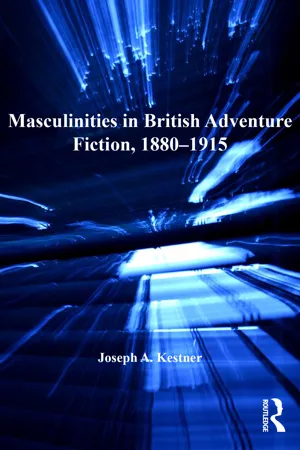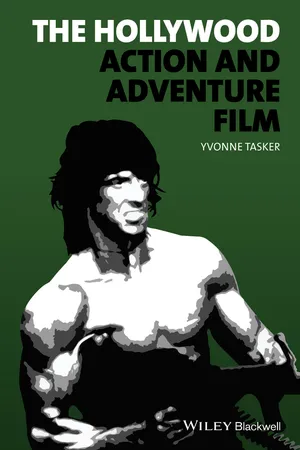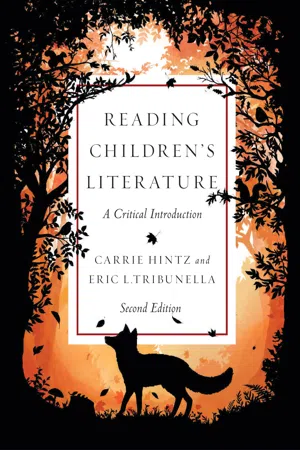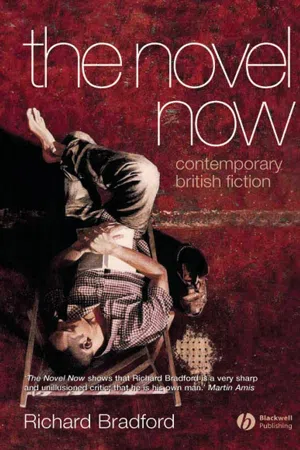Literature
Adventure Fiction
Adventure fiction is a genre of literature that features exciting and often dangerous journeys, quests, and escapades. It typically involves high-stakes action, exploration of exotic locations, and encounters with perilous situations. The genre often focuses on the protagonist's bravery, resourcefulness, and ability to overcome obstacles in the pursuit of adventure.
Written by Perlego with AI-assistance
Related key terms
1 of 5
5 Key excerpts on "Adventure Fiction"
- Joseph A. Kestner(Author)
- 2016(Publication Date)
- Routledge(Publisher)
Stevenson in ‘A Humble Remonstrance’ injected gender into his evaluation of adventure: ‘Life is monstrous, infinite, illogical, abrupt and poignant; a work of art, in comparison is neat, finite, self-contained, rational, flowing and emasculate’ (70). This interesting final term recognises the masculinising project of adventure narratives. It is not that Stevenson excludes sex and women from his texts, which he does. It is that in its focus on masculine experience, often homosocial, Stevenson is emphasising that his stories are ‘masculate’, about maleness. This is the primary if narrow agenda of many adventure texts, to model masculinity and interrogate it, albeit this may entail the exclusion of women or the relegation of sexual relations to a secondary role. Millman contends: ‘The male novel is in fact a conservative backlash to an overwhelming association of the Victorian novel with women, often made by people who neither liked novels or women’ (13–14). In fact, however, as the fourth chapter of this study suggests, women often play a central role in the adventure narrative.Martin Green (1979) defines the adventure genre as follows: ‘Adventure seems to mean a series of events, partly but not wholly accidental, in settings remote from the domestic and probably from the civilized (at least in the psychological sense of remote), which constitute a challenge to the central character. In meeting this challenge, he/she performs a series of exploits which make him/her a hero, eminent in virtues such as courage, fortitude, cunning, strength, leadership, and persistence’ (23). John Batchelor (1982) argues that an adventure text is ‘both a sophisticated study of private experience and a story of action and adventure’ (100). For Green and Batchelor, the emphasis is on the personal aspect of the adventure.Linda Dryden, however, sees national agendas in addition to personal ones. She asserts about Adventure Fiction that its focus is ‘on heroes anxious for thrilling adventures in tropical locations where they prove their manliness, assert English racial superiority, and plunder the land of its riches’. There was a desire ‘to explore the geography and peoples of those parts of the world that the expanding British Empire was bringing to the attention of those at home’ (4). According to Dryden, however, ‘Conrad’s fiction challenges notions of confident Empire and the assumptions of white superiority’ (8).Graham Dawson (1994) notes the association of adventure- eBook - ePub
- Yvonne Tasker(Author)
- 2015(Publication Date)
- Wiley-Blackwell(Publisher)
Taves finds this wide-ranging application of the term adventure “so generalized and vague as to be meaningless” (1993: 4). Instead as the starting point for his authoritative study, The Romance of Adventure, Taves defines adventure as historical adventure, explicitly excluding fantasy films such as Raiders of the Lost Ark since they involve supernatural rather than human agency. For Taves, in contrast to other action-oriented genres that may be more contemporary, adventure “requires a setting remote in time and space” (1993: 92). Cameron too, although his model of adventure is very different, notes that “the accepted setting is another time and, for most audiences, another place” (1973: 71). Not only is adventure removed from the everyday, it is, both writers concur, a genre defined by a positive emphasis. While he refutes the existence of such a clearly defined entity as the “Adventure Genre,” Ian Cameron nonetheless writes of the “positive feeling for adventure” that emerges “both from the exhilaration of the action itself and from the provision of identification figures among the leader characters” (1973). The positive quality of adventure is for these writers in large part connected to the characterization of the hero and his capacity to act positively in the world. Taking Robin Hood as his exemplar of the adventure hero/film, Taves argues that the genre “deals with the valiant fight for freedom and a just form of government, set in exotic locales and the historical past. This is the central theme of adventure, a motif that is unique to the genre” (1993: 4). Differentiating adventure from both action and fantasy, Taves argues for the specificity (and in effect the purity) of historical adventure - eBook - PDF
Books and Beyond
The Greenwood Encyclopedia of New American Reading [4 volumes]
- Kenneth Womack(Author)
- 2008(Publication Date)
- Greenwood(Publisher)
The Western genre is full of Wild Adventure Fiction 13 Many contemporary novels and stories of action adventure often leave any depth of charac- ter or plot structure out of the main text.The focus is on action and adventure that involves physical, often violent activity, which is emphasized more than character development, moti- vation, and overall theme. Fiona Waters says this of Willard Price’s adventure series that is also true of many adventure novels and stories:“Nothing gets in the way of the narration, of the boy’s exploits and the constant stream of information—no time is wasted on philoso- phizing or theorizing, all is action and very successful” (Rubinstein 2007). West adventures, but very seldom do they involve true accounts by the authors who write about them. Spy, thriller, and mystery adventure fall under the same heading, but all belong to different genres because adventure is only a part of the whole story. History. Traveling the world meant exploration for expanding empires, conquer- ing civilizations, and acquiring new trade routes for new resources. Herodotus in mid-400 B.C.E traveled to Greece, Italy, and northern Africa to learn about its inhab- itants and their religions, the native flora and fauna, and the geography. Herodotus is considered one of the first travel writers, and he often gave lectures about his trav- els. The Vikings may have been adventure seekers and discovered new lands, but their travels also resulted in destruction, as did the different European empires. Colonies of different countries were established around the world, as adventurers claimed new unexplored land in order to acquire their untapped resources such as gold, spices, rubber, and slaves. Christopher Columbus is one of the world’s most famous explorers. - Carrie Hintz, Eric L. Tribunella(Authors)
- 2019(Publication Date)
- Broadview Press(Publisher)
With Clive in India (1884), for instance, sixteen-year-old Charlie takes a job with the East India Company and eventually participates in establishing British military control in parts of India. Whether on the frontier of the North American West, in the jungles of Africa, on the islands of the South Pacific, or in the colonies of the Indian subcontinent, Adventure Fiction is often set in imperial or colonial landscapes because they provide “unexplored” spaces, ready-made antagonists and dangers, possibilities for physical action and violence, and opportunities for concrete and material rewards and treasures.Because Adventure Fiction is premised on travel away from home to explore unfamiliar lands, it requires a space in which to enact adventure. Historically, exploration has been linked to commercial interests: the discovery of new trade routes, markets, and resources. Tainted by greed or economic urgency, these commercial interests have engendered the exploitation, manipulation, and domination that define colonial and imperial encounters. Moreover, understanding adventure as motivated by the desire to escape from domesticity clarifies exactly what the adventuring hero is escaping from: feelings of boredom and monotony, the confinement of established law and settled order, and a lack of clear and constructive purpose, all of which are likely to be exacerbated by the conditions of modern urban and suburban life in an industrial or postindustrial economy. Colonial and imperial spaces provide antidotes to these conditions, but they often come at the expense of native and nonwhite populations. Many Euro American adventure stories constitute Western fantasies of transcending the sometimes painful conditions of modern life in societies perceived as established and unchangeable. It should be unsurprising then that the genre of adventure was particularly prominent in the nineteenth century as both the United States and Great Britain experienced an age of expansion and empire.- eBook - PDF
The Novel Now
Contemporary British Fiction
- Richard Bradford(Author)
- 2009(Publication Date)
- Wiley-Blackwell(Publisher)
Part II Excursions From the Ordinary Fiction achieved respectability as a literary genre in the nineteenth century and then only grudgingly. Suspicion has always surrounded its innate ability to both replicate and transform the world in which we exist; novelists were, and are, a little too much like conjurors, tal-ented gatekeepers between the known, the accountable and the fan-tastic and unobtainable. Aspirations to aesthetic quality brought with them mechanisms of self-limitation. Indeed the competition between the techniques evolved by the modernists and the realists testifies to an equal desire to seem the least inclined toward that terrible short-coming, the distortion of actuality. And yet fiction as an industry is dominated by what the high cultural literati treat as subgenres, those which do indeed provide for the reader’s innate desire not to be reminded of the world they are in but to be taken somewhere else. The romance novel has existed as a reliable brand of escapism since the eighteenth century and science fiction has more recently fed the dispositions of some who want the novel to shift them a little beyond the inventive potential of modern technology and others who are gratified by spectacles of things and beings ‘out there’. Both are engaging in their own right and often executed with stylistic acumen by their practitioners but I have chosen to concentrate on the historical novel and crime for a number of reasons. Each, more than romance or science fiction, raises questions about the consensually presumed aesthetic superiority of mainstream fiction. As we have seen many of the New Postmodernists clothe themselves in the respectable gar-ments of metafiction and the avant garde while pandering to the reader’s most prurient instincts and inclinations. This, of course,
Index pages curate the most relevant extracts from our library of academic textbooks. They’ve been created using an in-house natural language model (NLM), each adding context and meaning to key research topics.




